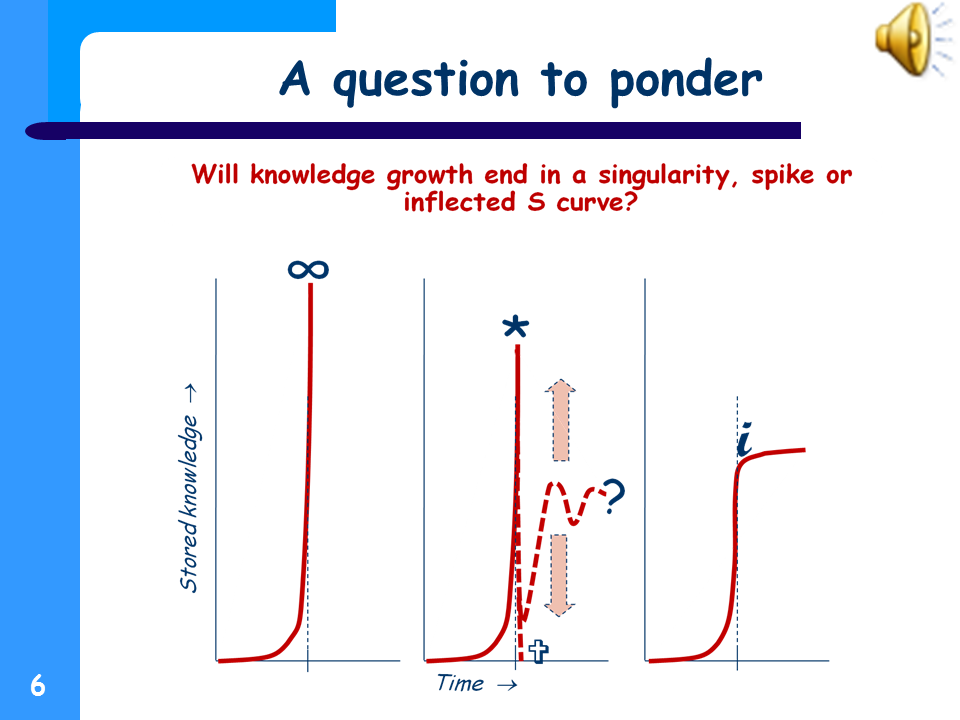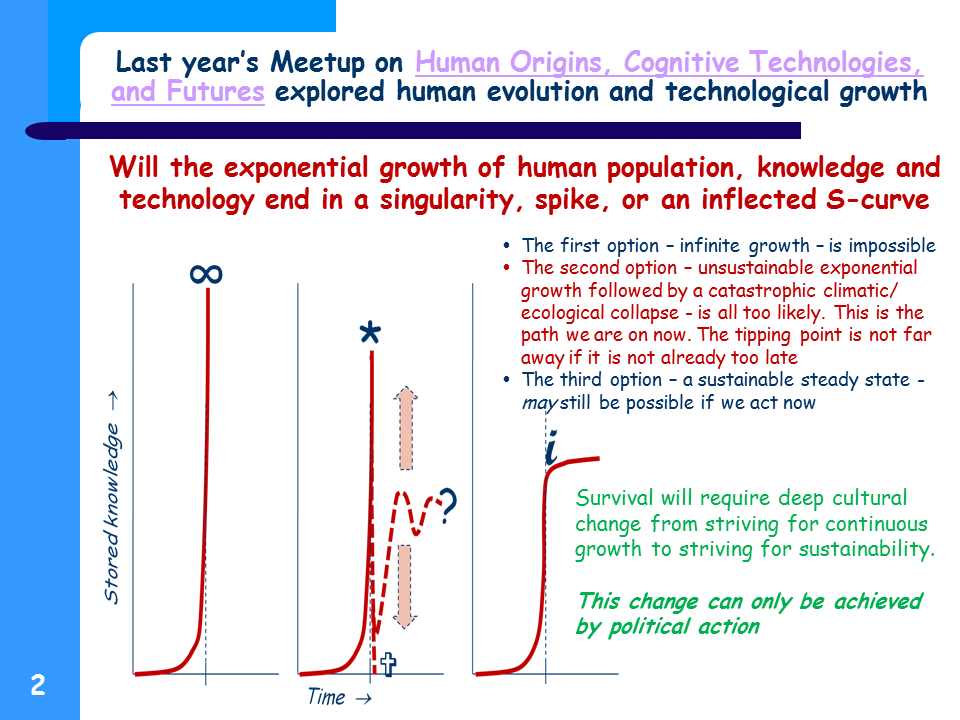
In the 21 July Meetup, I announced that this meeting will be the last one I will be conducting in the Melbourne Human Origins, Cognitive Technologies, and Futures series. This is because I think I have reached the end of the story of how humans have exponentially evolved their dominance of the Earth's ecosphere. Last year, I began the series with the following graphic.

In this meeting I begin by restating the question with what I think are the only possible alternatives:

Until this year (2016) I thought our history of exponentially growing knowledge and technology would be ended by some kind of technological revolution changing humans through a process of “Sublimation” or transformation of biological humans into or replacement by something no longer recognizably human, e.g., upload cognition to a strong solid state AI.
However, my involvement in Greens campaigning for the Federal Election led me to update my understanding of global warming by referring to a variety of current measures of greenhouse gases and climate change, and I now think that we don't have enough time to escape the mess we are making of our birth planet. This is because our exponential growth in population and energy intensive technologies has so abused the planetary biosphere that we face a near-term climate "emergency" that will likely result in ecosystem collapse before we have time to either engineer corrections or leave the planet.
The issues we face are consequences of a number of positive feedbacks in the complex system of atmosphere, hydrosphere, geosphere and biosphere that we are changing at geological rate only surpassed by an asteroid strike like that that which exterminated the dinosaurs at the end of the Cretaceous.
In this last presentation I will review the nature and science of the “climate crisis” we currently face. If we do not restrain our exponential growth within the next very few years (say a decade) the science suggests there is a very large risk that our existing activities are unleashing several temperature sensitive positive feedbacks that will result in driving global air and ocean temperatures high enough to cause the collapse of most terrestrial and marine ecosystems leading to a global dieoff comparable to that which happened at the end of the Permian (see Permian–Triassic extinction event), when ~70% of all vertebrate species and 96% of all marine species became extinct. Geological evidence suggests that the end Permian event may have been caused by a massive release of methane gas resulting in runaway global warming.
If we continue with “business as usual” it is unlikely that humans would survive such a catastrophe. However, given the still accelerating growth of human knowledge, communications, and technology humans probably do have the capacity to respond adaptively to the crisis soon enough to organize some kind of “soft landing”.
Whether we will even try is now purely in the political sphere. If the science denying Turnbull LNP government and Trump Republicans have anything to say – this won’t happen.